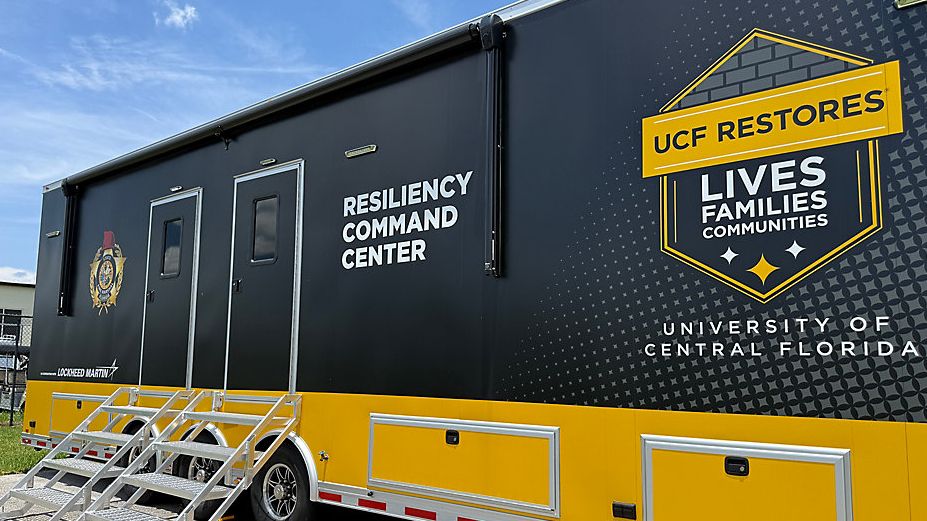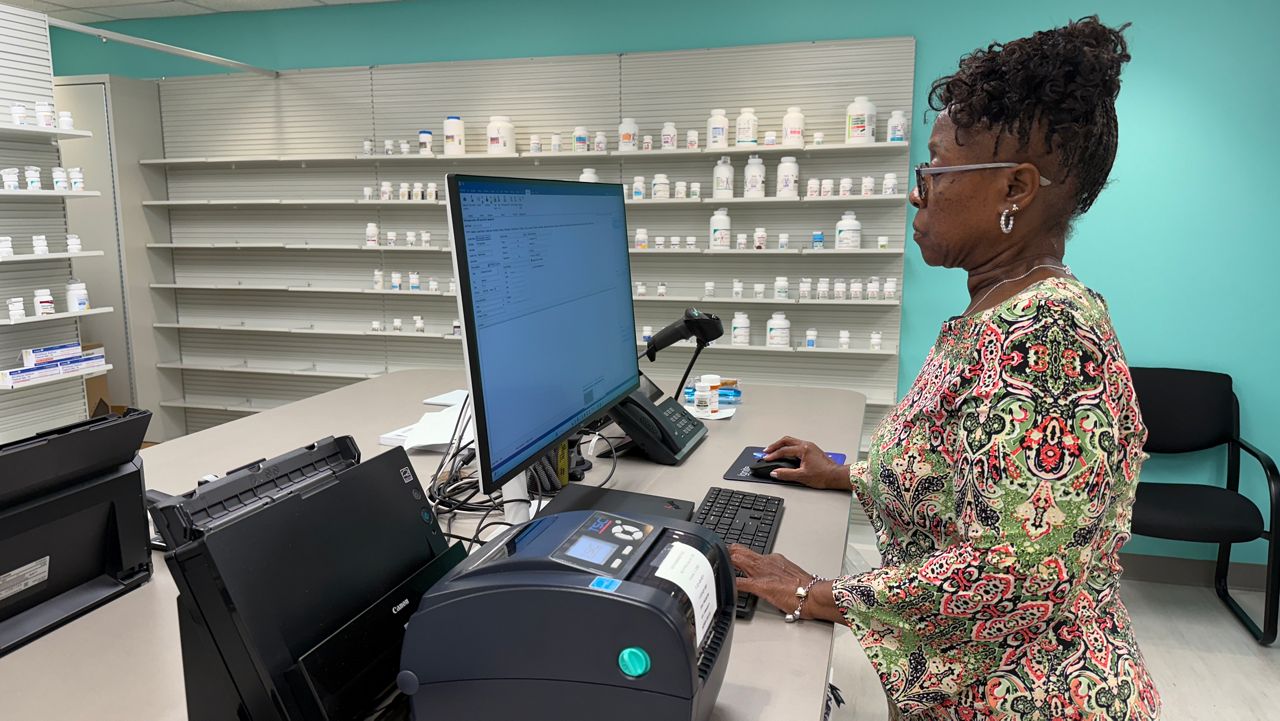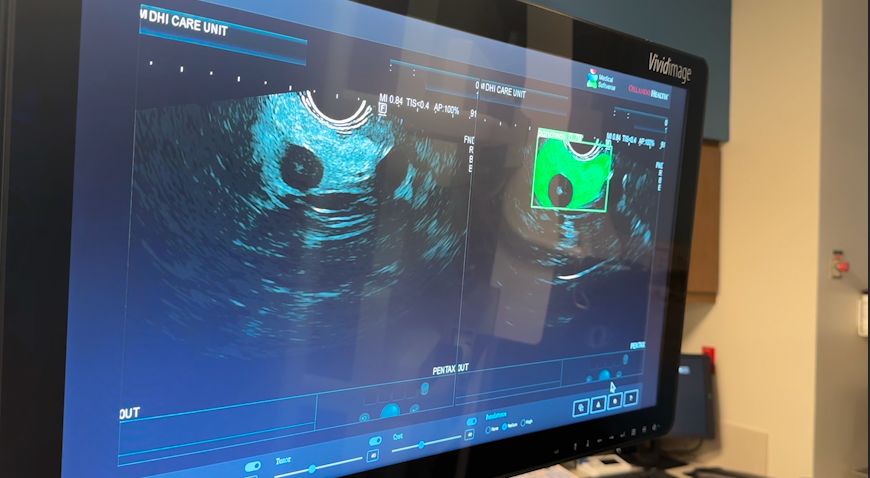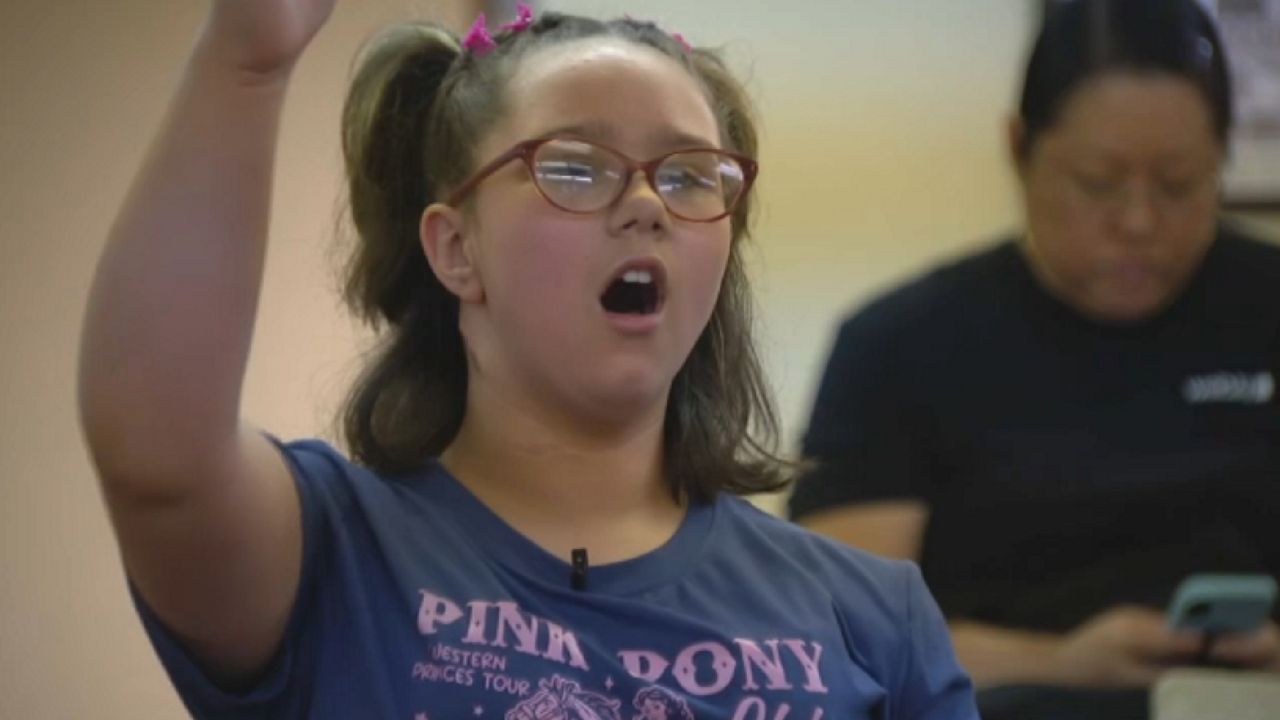ORLANDO, Fla. — While omicron cases have already been identified in parts of Europe, Canada and Australia, medical leaders in the U.S. say it’s only a matter of time before the variant makes its way to the states, if it hasn’t already.
What You Need To Know
- The COVID-19 omicron variant has already been identified in several countries
- So far, there has not been a confirmed case of the variant in the U.S.
- One local pharmacist says he's seen a drop in vaccinations lately, but expects that to change when omicron arrives
But doctors are stressing that while little is known about omicron so far, there are steps people can take to prevent its spread.
Wearing masks, social distancing, avoiding crowds and of course, getting your COVID-19 vaccine can help to curb further spread of the omicron and other variants of COVID-19, according to doctors.
Over at Orlando Pharmacy, officials said demand for shots has dropped off in recent weeks.
Popping into the pharmacy Monday morning to pick up a prescription refill, Orlando resident Greg May was also ready to get his COVID-19 booster shot. He planned to get the Pfizer dose as an added precaution in the pandemic.
“People are so misinformed about this," he said. "For example, my next door neighbor is afraid to come around me because I’m vaccinated. He thinks you catch it from vaccinated people, but now that I’m vaccinated, if he gets sick I can take care of him."
“We’re going to go ahead, just a slight pinch for you,” said pharmacy technician Parker Baro, while giving May his Pfizer booster.
Baro said even after expanding access to boosters for all adults, demand for COVID-19 vaccines overall has dropped off.
“It was a little shocking that we didn’t have so many people,” Baro said.
“We definitely saw a drop off in the last two, three weeks," said Pharmacist Craig Sicinski. "Prior to that, it was definitely busy."
Sicinski said with Europe’s recent wave of new coronavirus cases and now, the new omicron variant’s rapid spread globally causing concern, he doesn’t think this dip in demand will last long.
"There's another variant coming at us," he said. "And then, whatever happens overseas, Europe you know, other countries, Mexico, whatever, it’s just a matter of time before we experience that wave here and there will be a demand increase following that."
Related Stories
- Biden urges Americans to get vaccinated or boosted before omicron hits U.S.: 'This variant is a cause for concern, not a cause for panic'
- Wary, weary world slams doors shut in face of new variant
- More omicron cases pop up as world rushes to learn more
- Dr. Fauci says omicron variant will 'inevitably' come to U.S.: 'The question is, will we be prepared for it?'
While little is known about omicron's severity and just how effective the current COVID-19 vaccines are against it, internal medicine physician Dr. Aftab Khan said it's likely vaccines will still offer some level of protection. And with so much of the U.S. population already fully immunized, Khan said it's possible the variant's spread may not be as severe as previous mutations.
“Of course, we’re always hoping that nothing happens, that it’s going to be safe, that we’re not going to be too inundated, of course, but if that’s something people are worried about, definitely it’s easy to get that shot and you’re going to have that extra protection,” Baro said.
May said he’s not worried about the omicron variant’s spread now and feels more protected against COVID-19 now that he’s got that booster shot in his arm.
“I’m taking precautions," he said. "Better to be safe than sorry."
The omicron variant has not yet been confirmed in the U.S.
And while it appears to be more transmissible than other variants, Khan said there’s still a lot we don’t know yet about omicron — including if it’s more severe than other mutations or how effective our vaccines will be against it.
“There is no need to panic yet, because the majority of our population is already vaccinated," Khan said. "And these vaccines we have that are currently available are broad spectrum vaccines so I would say, if they are effective against delta, alpha and beta variants, they should have some degree of protection against omicron."
More data is expected in the next one to two weeks which will help to offer more insight on omicron’s severity and how effective current vaccines will be against it.










